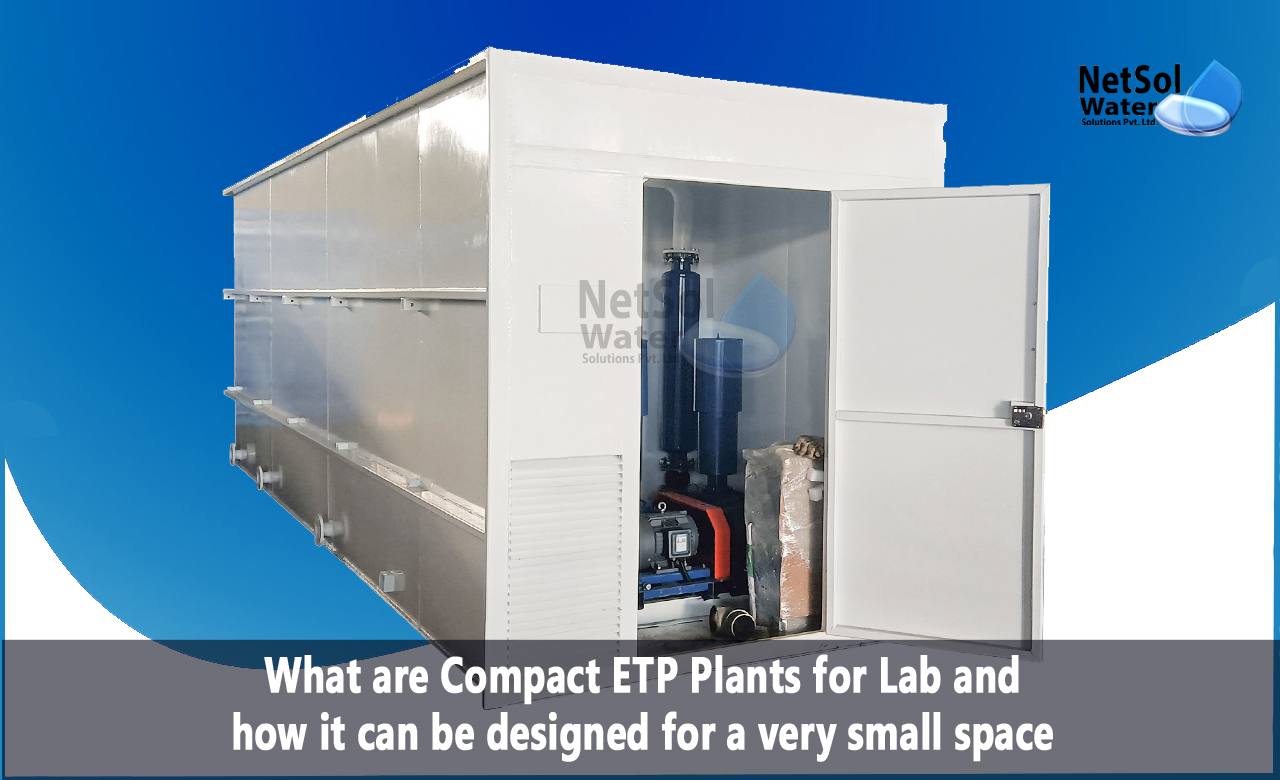In many industries, wastewater is a byproduct of various processes, and it needs to be treated before it is discharged into the environment. Effluent Treatment Plants (ETPs) are designed to treat the wastewater generated from industrial processes. Compact ETP plants for labs are specifically designed for laboratory applications where space is a constraint.
In here we will discuss the design of a small, compact ETP for labs, along with the process flow diagram and working function.
What is a Compact ETP for Labs?
A compact ETP for labs is a wastewater treatment system that is designed for laboratory applications where space is limited. The system is designed to treat the wastewater generated from various laboratory processes. The system is compact and can be easily installed in a small space. The compact ETP plant for labs uses various physical, chemical, and biological processes to treat the wastewater.
Advantages of Compact and Small ETP:
· Small Footprint.
· Affordable plant upgrades.
· Prefabricated modular systems.
· Nitrification and denitrification in cold climates.
· Less generation of solids and sludge .
· Flexible and Expandable designs.
· Constant flow.
Designing a Small Compact ETP:
Designing a small, compact ETP for labs requires careful consideration of various factors such as the type and volume of sewage generated, the available space, the level of treatment required, and the discharge standards.
The following are the steps involved in designing a compact ETP plant for labs as shown below and explained underneath:
Steps:
· Step 1: Collection of Wastewater:
The first step in the treatment of wastewater is its collection. The wastewater generated in laboratories is collected and stored in a storage tank. The storage tank should be designed to hold a sufficient amount of wastewater to ensure that the treatment plant operates continuously.
· Step 2: Screening and Grit Removal:
The next step is the screening and grit removal process. The wastewater collected from the laboratory contains various solid and organic particles. These particles need to be removed before the water can be treated further. The wastewater is passed through a screen to remove large particles, and then through a grit chamber to remove small particles.
· Step 3: Equalization:
The equalization process involves the mixing of the wastewater to ensure that it has a uniform composition. The wastewater is mixed in a tank, and the pH and temperature are adjusted to ensure that the treatment process is efficient.
· Step 4: Biological Treatment:
The biological treatment process involves the use of microorganisms to break down organic matter present in the wastewater. The wastewater is passed through a biological reactor, where it is mixed with bacteria and other microorganisms. These microorganisms break down the organic matter present in the wastewater, converting it into carbon dioxide and water.
· Step 5: Chemical Treatment:
The chemical treatment process involves the addition of chemicals to the wastewater to remove any remaining organic matter and pathogens. Chlorine or ozone is added to the wastewater to disinfect it and remove any pathogens present.
· Step 6: Filtration:
The final step in the treatment process is filtration. The treated wastewater is passed through a sand filter, which removes any remaining suspended particles, and then through an activated carbon filter to remove any remaining impurities.
Summary:
Compact ETP for labs are specifically designed for laboratory applications where space is a constraint. The system is compact and can be easily installed in a small space. The compact ETP plant for labs uses various physical, chemical, and biological processes to treat the wastewater. The design of a small, compact ETP for labs requires careful consideration of various factors such as the type and volume of wastewater generated, the available space, the level of treatment required, and the discharge standards.
Leading manufacturer of sewage treatment plants in India.
Netsol Water is the leading manufacturer, supplier, and exporter of a quality selection of water treatment, and wastewater treatment products in India, by using advanced sewage treatment methods.
RO plants, water softeners, ETPs, STPs, DM plants, AMC, O&M, Ultra filtration, UV, Ozonation, ZLD plants, Anoxic tanks, and other goods and services are available from us. We also provide services to businesses in sectors including automotive, pharmaceutical, textile, pulp & paper, beverages, refineries, schools, hospitals, office buildings, and hotels, among others.
Call us at +91 9650608473 or email at enquiry@netsolwater.com for further information.



